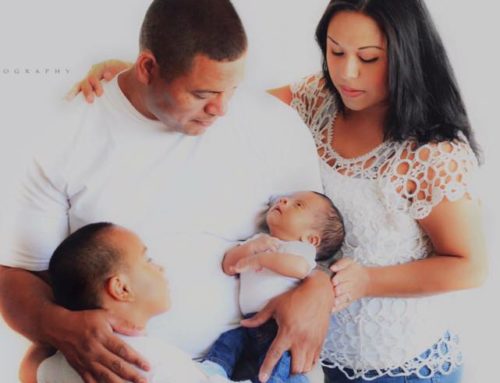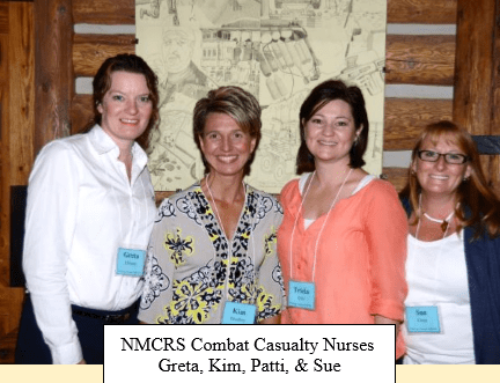Almost every Marine, Sailor, and other service member who has come through FOCUS has been touched by the tragic events of a suicide of a brother/sister. It’s a sad and tragic statistic that twenty-two of our veterans commit suicide every single day. This occurs because they reach a point of hopelessness in their lives trying to deal with the emotional wounds of war and their personal losses.
Bereavement for the loss of a loved one following suicide is unique to each individual, while at the same time, the process survivors tend to follow toward healing is surprisingly uniform. If you are dealing with a suicide, you will most likely feel shock, disbelief, protest, disorganization, and anger. You may also feel intense guilt and anxiety; a haunting feeling that you are to blame. Survivors often feel that they did not do enough to save the person who died: “If only I had said…” “If only I had done….” “Why didn’t I see the signs?” These feelings are difficult to reconcile and often leave a person with persistent, troubling concerns that are referred to as “survivor’s guilt.”
Survivor’s guilt is amplified if you are the one who discovered the suicide. You are left in the valley of “why” and “if only” and you may feel a profound sense of connectedness to the victim or to others surrounding you after a suicide. As the immediate shock begins to wane, you may feel a great deal of helplessness.
Everywhere you turn you are confronted with the deeply troubling question of why you were not able to prevent this tragedy from happening. Many people coping with survivor’s guilt talk about reexamining their entire belief system and having difficulty trusting the world around them. Suicide death in our society is often a source of shame and embarrassment. You may have varying religious beliefs that are called to the forefront of this painful and foreboding frontier you find yourself looking upon. You may find that you feel overwhelmed with the question all survivors of suicide feel at one time or another – “Why couldn’t I stop it?”
Everyone Grieves Differently
It is gratifying to know that you are not alone. Survivors should always be aware that each person affected by the loss may grieve a little differently and that one’s own personality and individuality enter into the grieving process. There are gaps or differences between individuals coping with loss. And there may be a canyon of unresolved issues between each affected person and the lost loved one. Everyone has different ways of coping with stress, anger and pain. Sometimes people report that while they are healing from a suicide they learned a great deal about one another and about each other’s beliefs and values. And often, a silver lining occurs when a suicide ultimately brings people closer together and causes them to reestablish bonds and family connections.
Survivor’s Guilt Is Normal
Survivor’s guilt is a very normal response to the traumatic experience of suicide. The best way to help yourself heal is to acknowledge and accept your feelings and those of others that have affected by the loss. Talk about how you feel with other survivors and recognize that you do not have the answers to all the questions hurling around inside your head. It’s very important to find ways to keep your loved one’s memory alive. Make a memory book, plant a memorial garden (however small) or donate a tree – whatever you can do to celebrate the life of your brother/sister. If your feelings of guilt are so overwhelming that you find it impossible to take care of yourself and perform the necessary dayto-day activities, don’t be afraid to seek out a grief professional. They can help you mourn your loss and respond to your own needs as well.
And, most importantly, you may find that talking to other people who have been where you are will help you understand that the suicide was not your fault and while you may never be quite the same, you will be able to forgive yourself, to heal and move forward. Above all, remember that suicide is a personal choice, and no one’s fault.
Identifying Suicide Potential
One small act can make a big difference in the life of a Veteran or Service member in crisis. Some of the warning signs of suicide potential are…
- Hopelessness, feeling as if there’s no way out
- Anxiety, agitation, sleeplessness, or mood swings
- Feeling as if there’s no reason to live
- Rage or anger
- Engaging in risky activities without thinking
- Increasing alcohol or drug abuse
- Withdrawing from family and friends
If you or your brethren exhibits any of the following signs, seek out immediate help …
- Thinking about hurting or killing yourself
- Looking for ways to kill yourself
- Talking about death, dying or suicide
- Self-destructive behavior (drug abuse, weapons, etc.)
The Veterans Crisis Line is asking you to think about “The Power of One” and how a single act can encourage Veterans to access confidential support resources. Everyone can be the person who makes a difference in a Veteran’s life, and connecting with support doesn’t have to be hard. If you notice these warning signs in a Veteran, tell him or her about the Veterans Crisis Line, or make the call yourself. Call (800)273-8255 and Press 1, chat online at www.VeteransCrisisLine.net/Chat, or text to 838255 for free, confidential support, 24 hours a day, 7 days a week, 365 days a year.







